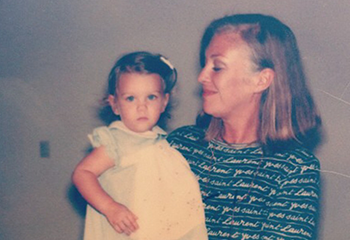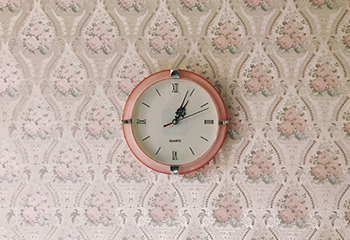Finding Meaning After Loss

I recently turned 40 and I spent the morning sitting on my patio writing in my journal and reflecting on the last year. Birthdays are always hard for me. No matter how festive or sweet or quiet or loud, something always feels to be missing. I always feel a strange sort of embarrassment or shame or melancholy, and I know that all of this has to do with no longer having the two people who brought me into this world.
Some years are harder than others, and this morning I was thinking about why. I realized that the years in which I didn't feel melancholy were the years in which I spent my birthday in service of some kind. This realization led me to think about the bigger concept of being in service.
It was a couple of years after my father died when I found myself working in helping capacities – first at a nonprofit supporting underserved school kids, then at an organization that helped homeless people find jobs, after that in hospice, and now in private practice as a grief counselor. Every single day now I talk to people who are hurting, people who are lost, and people who feel alone. Every single day I work to step out of my way and give something of myself to the community around me.
This is the number one thing that has led me out of my grief and pain. Finding a way to feel useful and purposeful in the world, making meaning out of tragedy, and giving what I can of myself, has changed my life. If you are grieving right now, or even just in pain of some kind, I recommend spending an hour or two, or even more, doing things for other people. I promise that those couple of hours will be the ones during your week that glow with peace and love.
There are no quick fixes to grief. It's a long process with ups and downs, but the things that I know that actually provide relief from the suffering are meditation, finding ways to be of service, and journaling.
If you’d like guidance on your grief process, my online grief program, A Safe Place to Grieve is now available in a self-guided version. Learn more here.
If you're grieving right now and you haven't tried these things, give them a shot. I promise they'll ease some of your pain.
Love,
Claire
Missing Your Dad on Father's Day

It's that time of year again - Father's Day is here. Card displays and lawnmower commercials serve as a constant reminder to celebrate our dads. But for those of us whose fathers are no longer with us, these reminders can be incredibly painful. While everyone around us is gathering to spend time with their fathers, it's a lonely day for others who are missing their dads.
I know your pain on this day. It's been 15 years since my father died and not a year goes by when I don't wish I could surprise him with breakfast and a necktie he'll never wear. For years I ignored the day, scanned the celebratory Facebook posts with empty eyes, and tried to find a balm for the twinges of envy and resentment I felt for those who still had their fathers.
Over the years something softened for me. Perhaps it was simply time but partly it had to do with finding a community of other people who were missing their dads too. Even though this isn't a club we wish to be a part of, we're not alone. This year if the relentless Father's Day messages are feeling like lemon juice in a paper cut, here are a few things you can do to ease this holiday:
- Listen to my live call recording with Author and Master Life Coach, Dr. Karin Luise, where we discuss Father Loss and how to move forward after losing your Father.
- Seek the company of those who understand. The Fatherless Daughters Project Community is a great place to start.
- The Beyond Fatherless Conference is another good opportunity to connect with others who get it.
- Decide how you want to spend the day. You could swing between deciding to stay home with take-out and bury yourself in Netflix all day or to do the opposite and embrace the day by honoring your dad and doing something that reminds you of him. (Note that each year may feel different depending on what's going on in your life.)
- Avoid social media for the few days surrounding Father's Day if it's triggering too much for you.
- Let a few friends or family know that this day is difficult for you and let them support you during this time.
- Allow for a multitude of emotions. Anger, resentment, jealousy, frustration, anxiety, and sadness are all normal.
- Journal your feelings so that you do not get pent up.
- Make an extra appointment with your therapist just to give yourself some extra emotional padding.
- Do something in honor of your dad - volunteer or donate to a charity, write him a letter, visit his favorite place or restaurant.
Overall, know that you are not alone in facing difficult feelings on Father's Day, no matter how long it's been since you lost your dad. Be gentle with yourself and find the support you need.
Love,
Claire
Dealing with Regret in Grief

Today I want to explore grief and regret with you. To date I have never had a client who did not experience some form of regret following the loss of a loved one. Something left unsaid, a decision made near the end that they wish they could change, or a situation unresolved. After a loss these regrets can haunt us endlessly.
For several years after my mother died I obsessed about various things I did and didn't do towards the end of her life. It had been so hard to see her sick, so scary to see her turn into someone I didn't recognize, that I often withdrew from her, something that caused me great pain in reflection.
But by far, the hardest one was the night she died. I had left college and was on my way to the hospital, seven hours away. Halfway there I stopped to see a boy I had a crush on and decided to stay the night. Some of this decision came from avoidance and denial. But a lot of it was just my teenage naiveté. Nonetheless, my father called in the middle of the night to tell me that I had not made it in time, and that she was gone.
The remorse I carried over this ate me up for years. I couldn't believe that I had failed my mother in such selfish ways. I turned that fateful night over in my head like a Rubix cube, trying desperately to change the outcome. I cried and cried, and I wrote my dead mother endless letters telling her how sorry I was.
Eventually, years down the road, I was able to forgive myself. After I became a counselor I saw just how many people feel regret following a loss. And I was finally able to see myself in the context of so many others: as a human being, fallible and fragile, and full of love and fear and humanity.
We cannot change our past, but we can forgive ourselves. And we can recognize that we feel this pain because we loved someone so much. And that there is endless beauty in that.
If you find yourself consumed with regret following a loss know that working through these feelings is your path to healing and eventual peace. Find a therapist to talk through the emotions with. Write letters to your lost loved one. Forgive yourself.
You are not alone.
Love,
Claire
Mother’s Day Without Your Mom
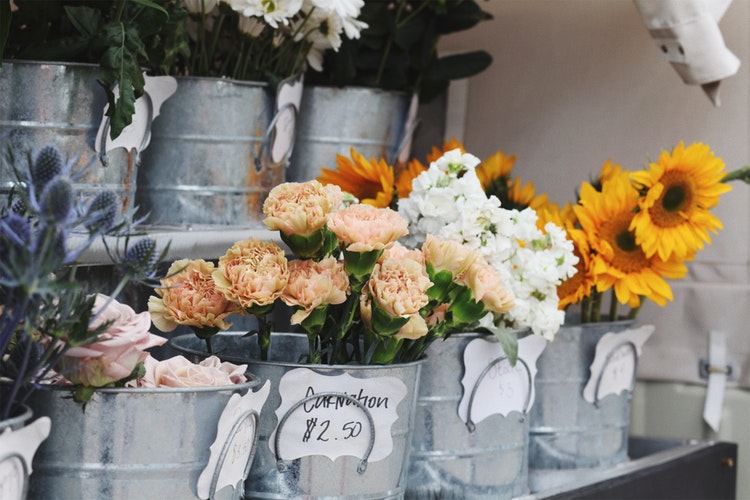
This week I’m thinking nonstop about everyone out there who is facing Mother’s Day without their mom here. It’s really one of the hardest holidays to get through when you’re missing your mama.
Fortunately, you’re not alone. And there are more resources than ever to help you feel supported. No matter how you choose to actually spend the day - in bed with Netflix or out with friends and family - take a moment to connect inwardly with your mom, and also to connect with the sisterhood of women all around you who are missing their moms too.
Resource:
How to Get Support on Mother's Day
A Place for Motherless Daughters on Mother's Day Weekend
An Open Letter to Motherless Daughters on Mother's Day
Free Mother’s Day Call with me and Hope Edelman:
List of blogs:
After Loss: Rediscovering my Mom in Motherhood
How to Spend Mother’s Day After Loss
Healing from the Loss of a Mother
My Online Grief Program is now available anytime!
Although registration is closed for the live May 2018 session, I have developed a self-guided version of the course and it's available now!
First, I want to tell you more about where my motivation to take this path and create this program deepened.
I can tell you that when I was a little girl, the idea of growing up to become a grief counselor was not on my list of things to be. But I can also tell you that I am nothing but grateful for the work I do today. A decade of professional experience, working one on one with clients who are grieving, along with my own personal two decades of loss, has given me such a breadth of knowledge.
It is all of this experience and knowledge that I relied upon to design this program and create the content. For ten years I have worked in the field—first in hospice and now in private practice. I have walked alongside hundreds of individuals going through their own deep grief process and in doing so, I have learned so much—not only about grief itself but about how loss shapes us and enables us to see the world in ways we would never have otherwise.
More about my online program: A Safe Place to Grieve | An online course for overcoming the difficult emotions of grief
Over the course of this self-guided program, I help you tap into the aspects of grieving that I have found essential to healing and growing after losing someone you love. I'm with you every step of the way, thinking about my own personal hardships and triumphs and also about each and every client I have worked with. These individuals have truly taught me everything I know today.
Get the full details here.
Love,
Claire
Honoring Holidays, Anniversaries & Birthdays for Loved Ones

There are so many difficult dates after you lose someone you love. Holidays, anniversaries, birthdays - there seems to be one around every bend, and each one brings on its own set of emotions. In the twenty years since my parents died I've experienced a multitude of reactions to these dates and some years are more painful than others. I can never be quite sure which dates will hold big emotions for me, and which ones will float under the surface quietly. But what I do know is that it helps me to do something to honor my parents on the dates that hold intense feelings for me.
For my father's ten year death anniversary I took a private flight lesson in a tiny Cessna. My father had been a pilot in the war and flying was a great love of his. For me, piloting this little airplane over the coast of Los Angeles ten years after his death, helped me feel closer to him than I had in years. I knew he would have loved the way my heart pounded as we ascended into the clouds and that he would have been proud of all the strength and resilience I'd found in the years since he'd been gone.
And after my daughters were born I began a ritual of making a cake with them each year on my mother's birthday. We use my mom's old mixer and measuring cups and spoons, and as we bake I tell them stories about how I used to bake with her. The whole act invokes her presence, not just for me, but for my daughters who never knew her in real life. After we're done we even light candles and sing to her, and hearing my mother's name on the lips of my daughters' never fails to fill my heart.
There are so many ways to ritualize and honor our passed loved ones. When we find ways to do so it creates healing and a sense of connection that is otherwise missing. Cook something they loved or make a reservation at their favorite restaurant. Plant flowers or indulge in a hobby they enjoyed. Watch their old favorite movie, gather friends or family for a meal and to share memories, or simply light a candle by their photo and say hello. (Check out Allison Gilbert's book Passed and Present for even more ideas.)
Additionally, I offer a self-guided online grief program: A Safe Place to Grieve. The program is based on the process I use every day with my grief therapy clients. You are guided through six sections using my meditations and videos, workbook, journal, emails and more.
Our hearts yearn to stay connected to the people we have lost. Honor that yearning, honor your relationship, and honor the love that you will always have for them.
Love,
Claire
How to Help Kids with Grief and Loss

Today I want to talk about kids and grief. Our children will inevitably experience loss. Sometimes it is directly – the loss of a friend or family member, and sometimes it is peripheral – witnessing a classmate lose someone or becoming aware of a national tragedy. Death is a complicated concept for children to comprehend. They feel it on a visceral, emotional level, but they are not quite able to understand it on a cognitive level.
When we experience loss as adults we not only feel it deeply, but we take in the big picture in such a way that it makes the pain even sharper. Often children cannot even comprehend that they will truly never see the deceased person again. They are not able to foresee all that their lives will look like as a result of the loss, and cannot imagine the important milestones and life moments a deceased person will miss. Instead, children and adolescents are very much in the moment. What does it look like right now to have the person gone? What does it feel like in this moment?
The best thing you can do is meet them exactly where they are. Talking about the loss with them in very simple and direct terms is helpful. Taking time to answer their questions, even if sometimes you have to say, "I don't know" as a response is important. Use clear language and allow them the time to come and go from their own thoughts. Simply providing space for them to process it in whatever way they do is vital. Giving them permission to feel everything they feel and providing a non-judgemental space in which they can explore their thoughts will benefit them greatly.
Lastly, teaching them about ritual or helping them find ways to memorialize the person is incredibly helpful. Check out Allison Gilbert’s Passed and Present for creative ideas on memorializing objects belonging to loved ones.
And here is a list of some of my favorite children’s books that really help open up conversation and understanding around death:
I know it can be intimidating to talk with your kids about grief. For some it can open up your own grief in ways you’re not ready to confront. For others it can be scary to not have all the answers. But again, simply providing space for them to process their own thoughts and fears provides enormous healing.
Love,
Claire
How Being Prepared for Death can Alleviate Anxiety

Today I want to introduce you to Amy Pickard and her company Good To Go. But before I tell you about her, let me tell you about what led me to her.
Experiencing so much loss in my life caused me a lot of anxiety about death (my forthcoming book is titled Anxiety: The Missing Stage of Grief), something that ramped up in particular after my first child was born. In the early days of my daughter's life I suddenly found myself fretting endlessly about what would happen if I died early, just as my mother had, leaving Vera without a mom. I thought about it obsessively to the point where I felt miserable. I didn’t want to think about death all the time; I had just had a baby, one of the most joyous experiences of my life! Eventually, I began to search for ways to alleviate this awful state I’d found myself in.
I knew that in order to do this I needed to face my anxiety head-on, which really meant facing death head-on. I asked myself the question: What if I do die early just like my mom? What could I put in place that would make me feel better? From writing letters to my daughters, to making some of my wishes known to friends, and taking out a life insurance policy, I literally started getting my affairs in order.
But what about all the other stuff?
When I heard about Amy Pickard and Good to Go I knew I had my answer. Following the loss of her own mother, and having to sift through the logistical mess her mother left behind, Amy started her company. Her wish was that everyone leaves this world prepared, not just for themselves, but for the loved ones they’re leaving behind as well. In a Good to Go party Amy will actually come to your house and sit down with you and your family or friends and help walk you through everything you need to do to be prepared to leave your loved ones behind. And she does it with humor, booze, and a rock 'n' roll soundtrack to boot. Last summer I hosted a Good to Go party with Amy at my house. I invited about a dozen friends and was pleasantly surprised with how all of them took me up on the invite. The evening was informative, heartwarming, and ultimately healing.
Amy provides a Good to Go folder and packet that she walks you through and that you continue working on at your own pace. From computer passwords to medical wishes, favorite memories, and on who’s wrist you want your favorite watch to land, the packet covers everything you want your loved ones to know in your absence.
Even though I plan on living to be a grandmother, I feel so much less anxious knowing that even if I don't, my loved ones will be taken care of. Check out Amy and all she does at Good to Go.
Here are some questions for you to begin thinking about on your own. Take your time with them. Create your own Departure File, or reach out to a company like Amy’s who can assist you in this task.
In the Event of Your Own Death
- Do you have a will or advance directives?
- Do your loved ones know your funeral/memorial wishes?
- Do they know your burial/cremation wishes?
- Do you have a list of all of your accounts and passwords?
- Do your loved ones know where to find your legal documents (will, advance directives, birth certificate, marriage certificate, car, home or life insurance)?
- Have you assigned someone to manage your assets or be a co-signer on your bank accounts?
- Have you taken measures to protect your dependents financially?
- Is there anyone particular you would like notified about your death?
- Have you thought about what you would like to happen to your pets?
- Are there personal belongings you wish to go to specific people?
- Are there memories or advice you wish to pass to your loved ones?
- Are there things you would like destroyed (i.e. journals and diaries)?
- Is there anything comforting you can provide to your loved ones? For example, a letter telling them what you hope for them after you are gone.
Love,
Claire
Healing from the Loss of a Mother
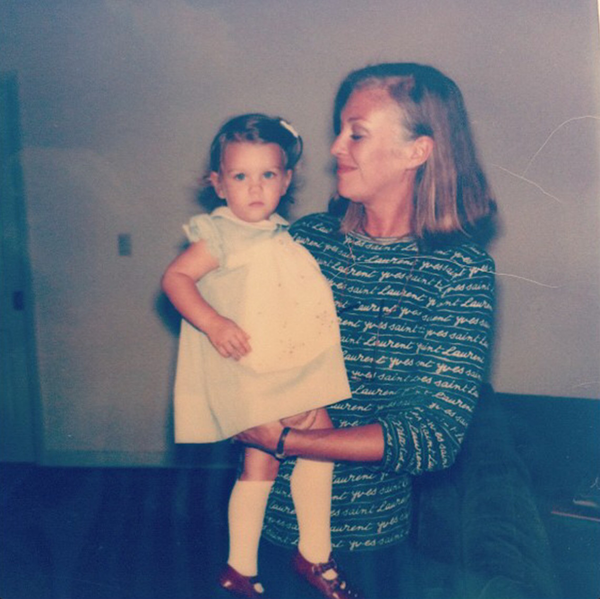
I recently led a retreat with Hope Edelman, author of Motherless Daughters, so it seems only fitting that I talk about mother loss today.
My mom died of cancer when I was eighteen years old. She'd been a wonderful mother and we were incredibly close. Her death shattered life as I knew it, and forever changed who I would become.
In the last twenty years of her absence, I've learned an enormous amount about the effects of mother loss. I lived through my own experience of it and I've also worked with countless women on their own journeys. In my book The Rules of Inheritance, I wrote:
“Her death leaves me both depleted and emboldened. That's what tragedy does to you, I am learning. The sadness and wild freedom of it all impart a strange durability. I feel weathered and detached, tucking my head against the winds and trudging forward into life.”
While there is no sense in comparing different kinds of loss, I do know that mother loss has a long-lasting impact on a woman's sense of self, on her relationships (romantic, familial and fraternal), on her sense of self-worth, and on her ability to feel nurtured in the world, no matter how much support she may have around her.
Over the last few years of working so extensively with motherless daughters, I've seen myself mirrored in dozens of women. I've sat in rooms filled with these women and seen the same themes emerge over and over - depression, anxiety, fear of more loss, difficulty with attachments, control issues - but also positive themes like fortitude, resilience, independence, ambition, and empathy.
I've often found myself wishing that certain people in my life - family members or partners who have struggled to understand me in the face of my loss - could hear these rooms and understand that my feelings and issues are not abnormal; that I am part of a sisterhood I never asked to join, but with whom I now clasp hands in gratitude that we have found each other.
If you have lost your mom please know that you are not alone in missing her months, years, and even decades later. This loss comes with its own subset of varying impacts on your life. Seeking support and understanding around this loss is incredibly healing and rewarding. Pick up Hope’s book, work with me individually, or join us on a retreat (there’s one coming up on February 16 - 19 in Ojai, CA). It’s never too late to begin healing.
Love,
Claire
How Long Does Grief Last?
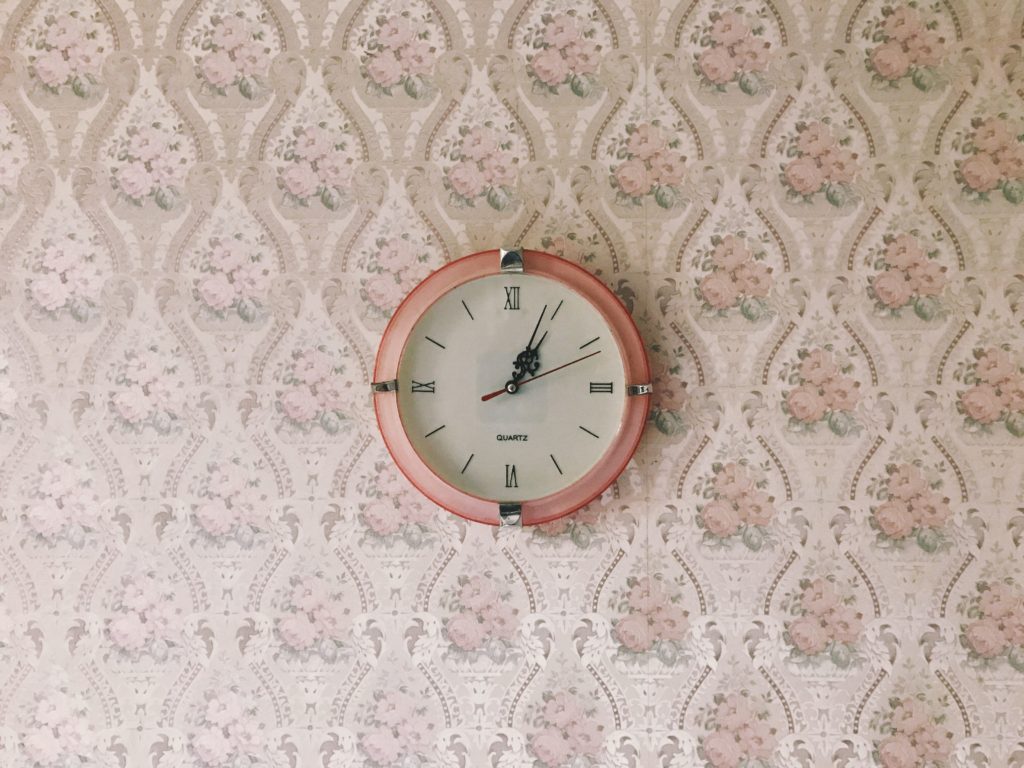
I've been thinking about the concept of grief and time lately. Probably because I always check in on where I am with my own grief during major milestones or fresh starts in my life. There are so many misconceptions about how long grief is supposed to last or not last. There are books and studies and reports and endless advice and opinions about what your grief should look like. But really, the only person who knows how long your grief should last is you.
Sometimes grief lasts a lifetime. It comes and goes and takes different shapes and it filters into different areas of your life. It goes to sleep for a while and then sometimes it returns after years of being gone. Sometimes we are grieving for only moments and sometimes we grieve for days and months.
For me, grief has been a dominant theme in my life, but it has not lasted forever. The losses themselves stay with me always - they shape and mold much of who I am. But grief itself is a more elusive creature. I have also grieved differently for the individual people I have lost. The grief I felt after my mother's death was not the same after my father's, nor after my friend's. There is no perfect formula for grieving that any of us could apply to our losses. I believe we must remember this, and that we must be kind and gentle with ourselves as we move through the process.
Anne Lamott writes, “You will lose someone you can’t live without, and your heart will be badly broken, and the bad news is that you never completely get over the loss of your beloved. But this is also the good news. They live forever in your broken heart that doesn’t seal back up. And you come through. It’s like having a broken leg that never heals perfectly—that still hurts when the weather gets cold, but you learn to dance with the limp.”
Be patient with yourself as you grieve, and don’t let anyone but you tell you how long it should last.
Love,
Claire










